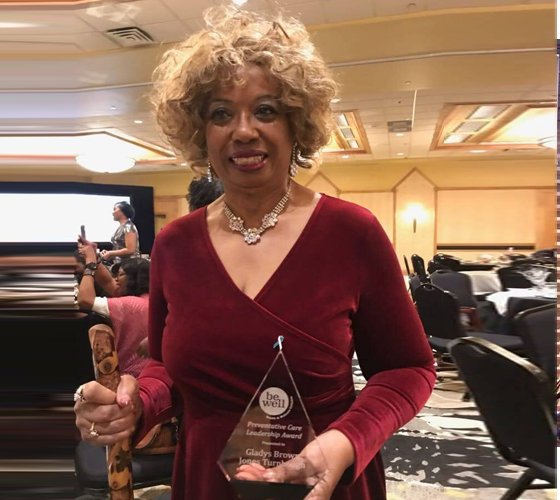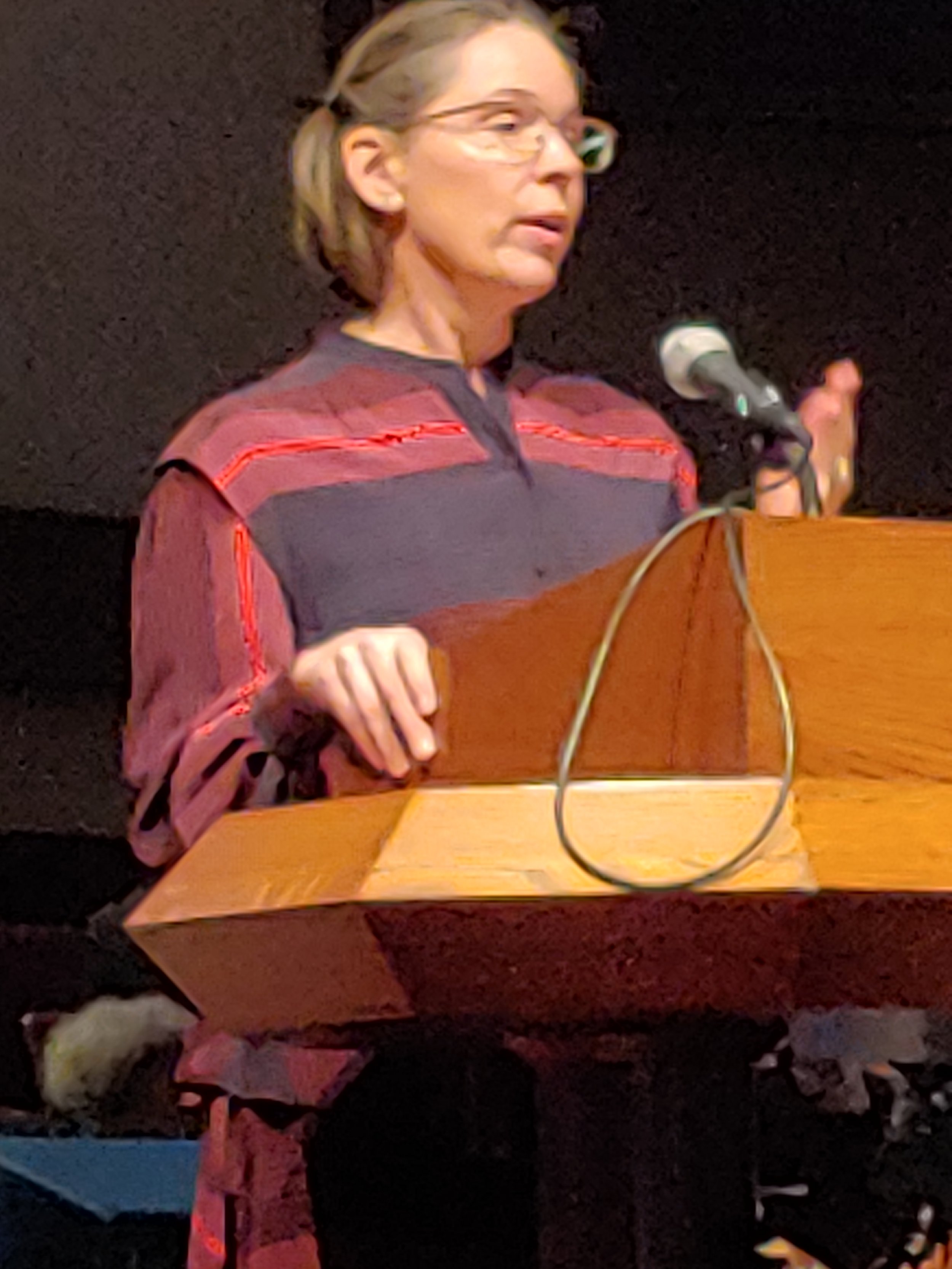Helping Others to Help Others
“Remove the cervical cancer fear, get your pap smear”
Arts & Wellness was formed in 2015 to bring awareness to a potential silent killer; cervical cancer. We are a grassroots nonprofit organization of Trailhead Institute. Arts & Wellness develops and implements plans to increase the rate of cervical cancer screenings; to increase awareness and the importance of HPV vaccination rate for children.
All contributions will provide:
Educational presentations at Denver metro area middle and high school and community health fairs to save lives from
cervical cancer and HPV-related cancers
Awareness of cervical cancer & HPV related cancers
Increase HPV vaccination rate in Denver metro area communities of color

our impact
“Helping Others, To Help Others”
Arts & Wellness promotes:
1. Get Your Pap Smear; Remove the Cervical Cancer Fear.
2. Vaccinate, Don’t Procrastinate, get your child, children vaccinated.
Since 2015, Arts & Wellness have provided cervical cancer screenings to 5,436 women who visited 9HealthFairs (9HF). We have participated in numerous health fairs providing brochures, pamphlets, and other educational materials in metro area communities. Our funding comes from our annual fundraiser held each January, community organizations, community leaders, community health organizations, and local church members.
spotlights
The EBCCP team interviewed Drs. Rebecca Perkins (program developer of DOSE HPV) and Thomas Schuch (a program implementer of DOSE HPV). They shared an update on DOSE HPV and the lessons learned from implementing an HPV vaccination program during the COVID-19 pandemic.
-
Dr. Rebecca Perkins has continued to implement the DOSE HPV program since she conducted the original research study described on the EBCCP website. In 2020, Dr. Perkins completed a randomized controlled trial (RCT) of the DOSE HPV program at five new sites and published the study results.
This recently completed RCT vaccinated boys and girls between 9 and 17 years old. One difference in this RCT compared with Dr. Perkins’s past research study is the number of motivational interviewing sessions. Because her previous research showed that motivational interviewing was an important factor in overcoming vaccine hesitancy, this RCT included two rather than one motivational interviewing session. The study found that improvements in HPV vaccine uptake were sustained 18 months after the intervention. These follow-up data showed that DOSE HPV was able to be effective well beyond the implementation of the intervention. The data further suggested that the provider education, data feedback, tailored systems changes, and early initiation of the HPV vaccine series were important intervention components that supported long-term success in the uptake of the HPV vaccine. -
The public health crisis of the COVID-19 pandemic presented a myriad of challenges throughout the world. At the start of the pandemic, many health care clinics were only scheduling face-to-face appointments if they were essential. Communicable diseases like HPV persisted despite the global pandemic, and Dr. Thomas Schuch knew that his clinic, South Boston Community Health Center, could not ease up on vaccinating its patients against HPV. Through strategic reflection and continued implementation of the DOSE HPV program components, the clinic committed to its ongoing HPV vaccine efforts. The clinic prioritized appointments for children (from infants to young adults) who were due for any childhood vaccine, which included those due for the HPV vaccine. For example, if a patient who was due for a vaccine called to schedule a physical exam, the clinic would also schedule this patient for receiving a vaccine. Thus, the clinic was able to safely complete patient visits without the need for a separate drive-through vaccine administration.
The South Boston clinic follows the motto “nine is fine,” meaning that all unvaccinated children who are at least 9 years old are due for the HPV vaccine, and the clinic takes steps to begin the conversation about vaccination with these patients and their parents. When an eligible patient visits the clinic, the providers receive electronic health record alerts reminding them to discuss vaccination with the patient and his or her parents during the office visit. The alert stays in the patient’s record until the HPV vaccine series is completed. The clinic has successfully used the DOSE HPV program for many years and found that HPV vaccine hesitancy did not increase during the pandemic. In fact, the clinic’s vaccine uptake rates steadily increased over the past year. At this clinic, males and females are equally vaccinated within their age groups, although males aged 13 to 15 have a slightly higher vaccination rate than their female counterparts.
Due to the pandemic, providers at the South Boston clinic were given extra time for their patient visits in order to address each patient’s needs and give the necessary vaccines (including HPV vaccine). At this clinic, providers also cannot sign off on their patient visit notes until they address the HPV provider alert. Dr. Schuch believes that other clinics can have similar success if they are able to change the clinic’s culture, a process that begins during the DOSE HPV provider training. Providers should remember that “nine is fine” and persistency is the key to increasing HPV vaccination rates. -
Rebecca B. Perkins, MD, MSc
Associate Professor of Obstetrics and Gynecology
Boston University School of Medicine/Boston Medical Center
Dr. Rebecca Perkins is an Associate Professor of Obstetrics and Gynecology at Boston University School of Medicine and a practicing gynecologist at Boston Medical Center. Her career is dedicated to reducing health disparities in cervical cancer and HPV vaccination. Her current research focuses on improving the utilization of HPV vaccination and cervical cancer screening guidelines. Dr. Perkins is currently working on national projects related to HPV vaccination and cervical cancer prevention with the National Cancer Institute, American Cancer Society, American Academy of Pediatrics, and American College of Obstetricians and Gynecologists. She currently serves as Co-Chair of the National HPV Vaccination Roundtable. -
Thomas J. Schuch, MD, MPH
Chief Information Officer
South Boston Community Health Center
Dr. Thomas J. Schuch is the Chief Information Officer, Pediatrician, and Provider Builder at South Boston Community Health Center (SBCHC), an OCHIN member clinic. Dr. Schuch has a baseline understanding of social risks and is committed to addressing them through whole-person care in his clinical practice. In addition, Dr. Schuch has utilized his informatics skills and technical expertise in designing clinical decision support/shared decision-making tools and population health tracking processes to be streamlined, action oriented, and embedded with data analytics. This work led to his Centers for Disease Control and Prevention 2019 HPV Vaccine Is Cancer Prevention Champion-Massachusetts Award. He has continued to look at enhancements to the electronic health record to maximize opportunities for HPV vaccine uptake and improve the tracking and monitoring of abnormal cervical cancer testing results. As a community health center provider, Dr. Schuch is also passionate about and committed to inclusivity and anti-racist activities.
Learn More About DOSE HPV
FAQs
“Evidence-based” means that the program was tested in a research study and has findings that have been published in a peer-reviewed journal. A program may not demonstrate the same level of efficacy or effectiveness if it is not appropriately adapted to the local context. Please refer to the Program Adaptation Guidelines for guidance on how to adapt the evidence-based practice to your setting and target population.
What does “Evidence-Based” mean?
Yes, the EBCCP website has six programs that are designed to promote HPV vaccine uptake/completion. Click here to find a program to implement in your setting.
Are there other HPV vaccination programs on the EBCCP website?
Yes, each program summary has a link that provides the email and/or phone number of the program developer/researcher. If the contact information is not provided, the developer has elected to not be designated as the contact point. You can send an email from the Contact Us page for further assistance.
Is there a way to contact the program developer/researcher?
MAKE A DONATION TODAY!
All contributions will provide:
Educational presentations at Denver metro area middle and high school
and community health fairs to save lives from cervical cancer and HPV-related cancers
Awareness of cervical cancer & HPV related cancers
Increase HPV vaccination rate in Denver metro area communities of color
what causes hpv?
Register for An Event
Join us on Saturday, January 2023, for the
9th Annual event.
Help plan our annual event, staff a 9Health Fair table or more..
GET INVOLVED
Volunteer opportunities
Volunteer at our event or for an outreach event.
MAKE A DONATION
Donate to help remove the cervical cancer fear!

























